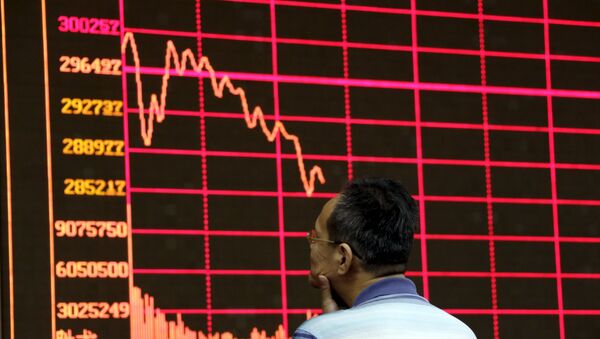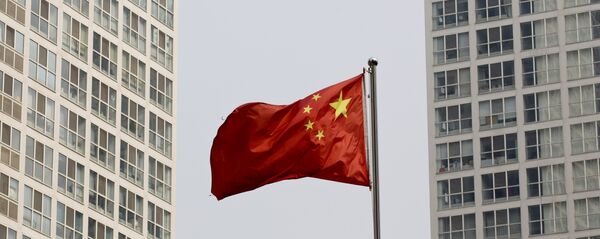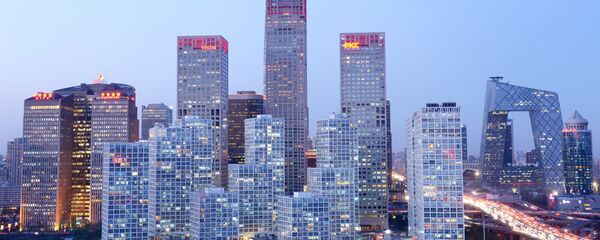Claudio Borio, the head of the BIS monetary and economic department, warned that the current period of global economic growth could end and the next financial crash could arrive "with a vengeance."
"Leading indicators of financial distress point to financial booms that in a number of economies look qualitatively similar to those that preceded the global financial crisis," Borio said.
According to the report, China and other emerging markets avoided many of the disastrous effects of previous crises, but now rising debt levels in China could make its economy more vulnerable to rising interest rates or a shock from lower demand. China’s corporate debt increased nearly twofold since 2007 to reach 166 percent of GDP, while household debt grew to 44 percent of GDP in 2016.
The BIS warned of a troubled time ahead for the global economy.
Commenting on overheating signs in China and other emerging markets, Monica de Bolle, a senior fellow at the Peterson Institute for International Economics and an adjunct professor at the School of Advanced International Studies at Johns Hopkins University, noted that it is a "usual alarm bell" and it is not necessarily mean that the new crisis could be the same as the previous crisis.
"The US and the UK were the hubs of the international financial system. When the 2008 crisis hit, by hitting them it basically put the whole of the international financial system under great stress. Emerging markets are not generally at the hub of the international financial system. This is not to say that those crises can’t be highly disruptive for every economy, including major economies, but the way these crises spread is different," de Bolle said in an interview with Radio Sputnik.
"China is not as important in terms of international financial architecture and structure, but it is a very important economy in a linchpin for emerging markets and other economies in the world. A problem in China could have the sort of spillovers, very rapid spillovers we saw in 2008. Although the form that that spillover would take would probably be different," she pointed out.
De Bolle also shared her thoughts on the possible effect of a downturn in the Chinese economy on Western markets. She said that a crisis in China would mostly hit Western economies through various trade and investment channels since China has become a major player in investment flows to the rest of the world.
"If something were to go wrong in China and these flows were to stop everybody would feel the heat. That would include not just emerging markets … but it would include also Western economies, which at this point, especially in Europe, are still relatively fragile. So, it could have very big potential consequences, but as I said before it’s different from what happened in 2008 because the channels that link China to the rest of the world are not the same channels that link the US and the UK to the world," de Bolle said.
Finally, de Bolle highlighted the importance of the political factor in emerging markets. According to the expert, in many of those markets preventive measures cannot be efficiently taken due to "weak governments."
"You have weak governments across Asia. You have some weak governments in Eastern Europe. And you certainly have weak governments in Latin America. That takes away some of the capacity to take the preventive policy steps. The political outlook matters a lot when you’re dealing with crises in emerging markets," she concluded.








